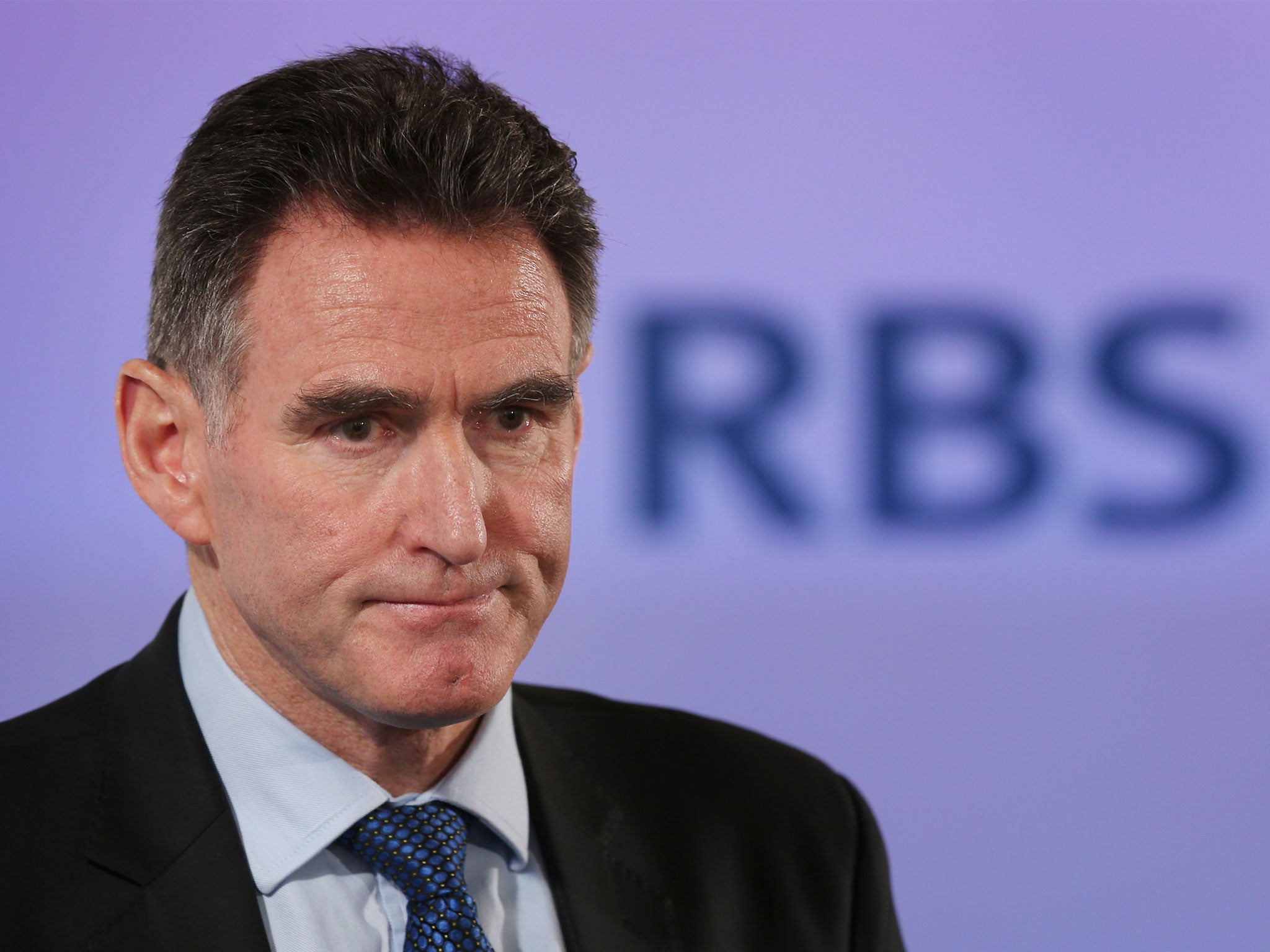At last bank bosses can be held accountable – but will they be?
Outlook: This is where things will get interesting for the watchdogs

Bank bosses are facing up to a new reality: if things go wrong on their watch they could at long last be held to account. Forget talk about jailing them, at least in the short term. That only applies in the event of a collapse, and the criminal standard of proof would probably make achieving a conviction challenging.
Of more importance are the Senior Managers and Certification Regimes imposed on bank bosses and risk-takers. Now, the Financial Conduct Authority will publicly deny that it needs a scalp to prove the system is working. But the reality is that it does, to send a message to the industry and a cynical public.
Banks might have hired a small army of new compliance officers and the new regime will concentrate minds in its early days, but this is the City of London: it won’t be too long before someone, somewhere, will be given a target that it is impossible to reach without cutting corners. Or they’ll cheat in pursuit of a bonus or a promotion, or just because they think they can get away with it. And then a manger will decide that they might just be able to get away with a cover-up, because their bonus is at stake too. It’s happened before, it will happen again.
This is where things will get interesting for the watchdogs. The Senior Managers Regime is tougher than anything that has gone before, but it has still been watered down. In its original form, top bankers falling foul of it would have had to prove they had taken all necessary steps to prevent wrongdoing under the “presumption of responsibility”.
With the industry having screamed blue murder, the onus is now back on the regulators to demonstrate negligence under a rather weaker standard. Which may give wealthy and powerful bankers in its cross hairs an out, especially if they arm themselves with skilful legal help.
The calculations for individuals facing heat from City regulators are very different to those facing firms. If your career is at stake, 30 per cent off a fine for agreeing to settle and take your medicine early doesn’t amount to all that much.
Regulators have become quite skilled at picking off low hanging fruit such as spivvy stockbrokers and dodgy financial advisers. But to prove the new system works, the watchdog needs to target a big fish from one of the City’s big firms. It is likely have to fight hard to land them.
An au revoir to Hinkley Point’s new reactor
Good news for the new nuclear reactor at Hinkley Point? Thomas Piquemal, the finance director of EDF, the French power company that still hasn’t formally agreed to go ahead with the project, has quit. Cue headlines declaring that the project is in chaos. Ah, but hang on a moment. Mr Piquemal is known to be one of its most vocal and prominent opponents.
This has given rise to a second interpretation, namely that it is good news for an endeavour which, it has been claimed, could produce 7 per cent of the UK’s electricity without the need to burn fossil fuels. It is supported by the fact that the French government, the majority shareholder in EDF, still supports the scheme.
But wait just one moment. While clearing the decks of a vocal and powerful opponent is, in theory, good news for the project, the fact that Mr Piquemal had either to jump or be pushed to get it moving is disturbing when viewed through the lens of EDF’s finances.
It isn’t any secret that the company isn’t exactly firing on all cylinders, as I reported when it issued a sobering set of results last month.
Mr Piquemal ought to have a better grasp of EDF’s finances than anyone. The fact that he is sufficiently concerned about Hinkley’s impact to give up his job rather than press ahead, ought to worry us.
If Hinkley represents the threat to EDF that he fears, then it doesn’t bode well for the project. EDF is, of course, backed by the French government. But that isn’t terribly reassuring; after all, the French state isn’t any more flush with cash than the British one.
Come on Ms Morgan, time to take the lead on equality
It is International Women’s Day, and so my in-box is full of facts and figures which amply demonstrate that the City, and indeed employers in general, have an awfully long way to go in terms of gender equality. It was exemplified by the fact that Nicky Morgan, the equalities minister, pays women in her department £2 an hour less than the men. There is, sadly, plenty more where that came from, such as the bonuses women in the City receive in comparison to their male counterparts, or the financial penalty they face if they have children early rather than later (an interesting contribution from the TUC).
It isn’t just women. As I revealed a few weeks ago, black graduates are shamefully underpaid when compared to their white counterparts; unemployment among disabled people (a group I’m in) is shockingly high; LGBT people still face appalling prejudice.
All the people in these groups buy goods and services. Employing them, and in senior positions, would help businesses serve them better, and thus to make more money. So diversity is good for business. But business still isn’t very good at diversity and Ms Morgan’s department isn’t leading by example.
Join our commenting forum
Join thought-provoking conversations, follow other Independent readers and see their replies
Comments
Bookmark popover
Removed from bookmarks